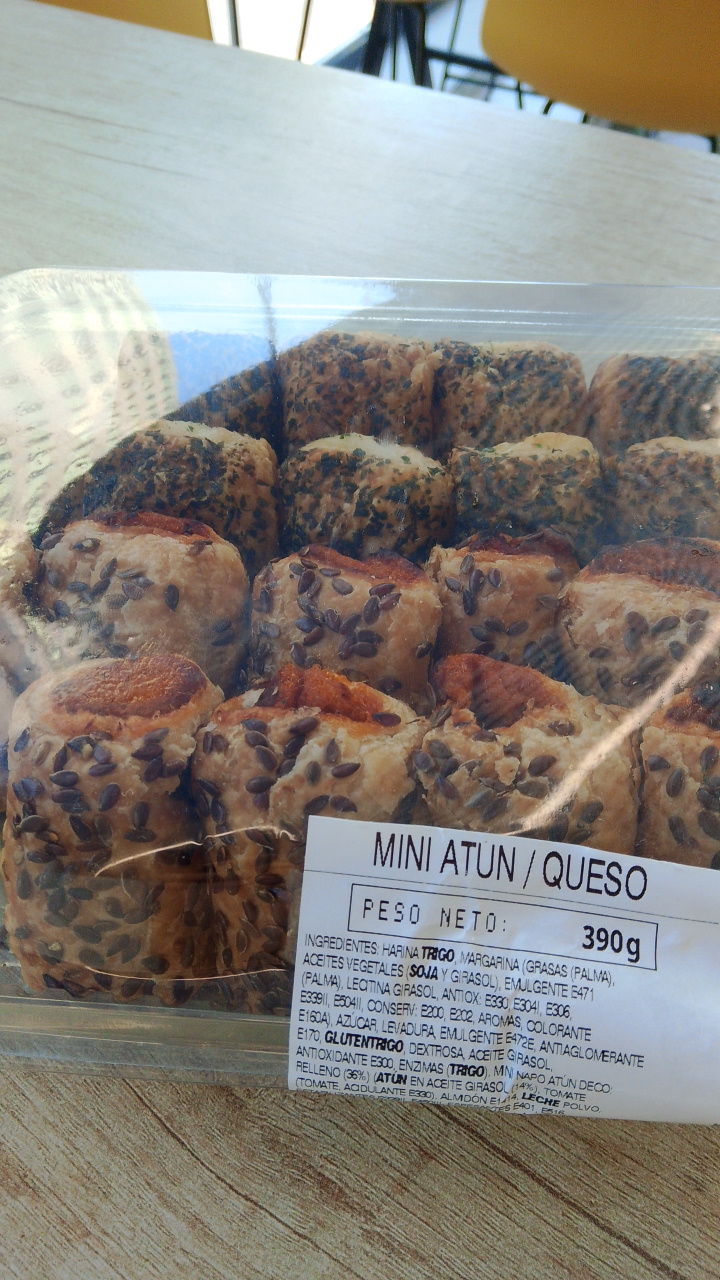
Barcode: 8402001002625
mini tuna / cheese
DOUBTFUL
📝 Reason: This product contains ingredients requiring further verification. Their Halal status depends on undisclosed processing details and source materials that need clarification.
🏷️ Category: Fish, Dairy
📄 Certificates: Net Weight: 390G
Ingredients:
Details
Understanding the Halal Status of Mini Tuna / Cheese
As consumers increasingly seek Halal-certified products, understanding the Halal status of various food items becomes essential. In this exploration, we delve into the Mini Tuna / Cheese product, which is categorized under Fish and Dairy. Despite its appealing taste, this product has a Halal status of doubtful. Let’s discover why.
Ingredients Breakdown
The Mini Tuna / Cheese includes several ingredients which necessitate careful scrutiny:
- wheat flour – Permissible in Islam.
- margarine (palm fats) – Status is ambiguous, requiring clarification on sourcing.
- vegetable oils (soy and sunflower) – Permissible in Islam.
- emulsifier E471 (palm) – Could be derived from non-Halal sources.
- sunflower lecithin – Permissible in Islam.
- antioxidant E330 – Permissible in Islam.
- E306 – Also requires context on sourcing.
- preservatives E200 and E202 – Generally accepted in Halal certification.
- colorant E160a – Has been flagged for potential concerns.
- emulsifier E472E – Also uncertain, depending on sourcing.
- milk powder – Permissible in Islam.
- And several other ingredients that mostly fall under permissible status.
E-Numbers and Their Implications
Understanding the E-numbers in Mini Tuna / Cheese is crucial for Halal consumers. Here’s a list of the significant E-numbers:
- E471 – This emulsifier can be derived from animal or plant sources, triggering the need for further verification to confirm its Halal status.
- E160a and E306 – Both can be considered based on their extraction and processing; this is hindered by insufficient disclosure.
- E200 and E202 – Commonly accepted and does not usually pose issues with Halal compliance.
- E472E – Its plant or animal origin leads to doubts; information regarding its source is crucial.
- E330 – A widely used antioxidant in various foods that remains permissible.
- Various other E-codes such as E504ii, E339ii, and E401 are also considered permissible but necessitate further inquiry on sourcing methods.
Why is the Halal Status Doubtful?
The Halal classification hinges on the processing methods and sources of ingredients in Mini Tuna / Cheese. Due to the inclusion of certain E-numbers that might derive from non-Halal sources, it triggers a need for further verification. The lack of clarity around these components explains the doubtful Halal status.
This is particularly relevant for consumers adhering strictly to Halal dietary laws, as ambiguity could lead to compliance issues. Many E-numbers, while permissible in Islam, may not have clear origins listed on packaging. Thus, continuing to question and research these products is essential.
Final Thoughts
For those seeking Halal-certified products, understanding the ingredients and their origins plays a vital role. While the Mini Tuna / Cheese is an appealing option for many, its doubtful Halal status advises caution. Engage with brands actively to clarify ambiguities and look for full Halal certifications when making purchasing decisions.
In conclusion, while enjoyable, Mini Tuna / Cheese serves as a reminder of the complexities involved in food choices for Halal consumers. Always prioritize ingredient transparency and certification clarity.
